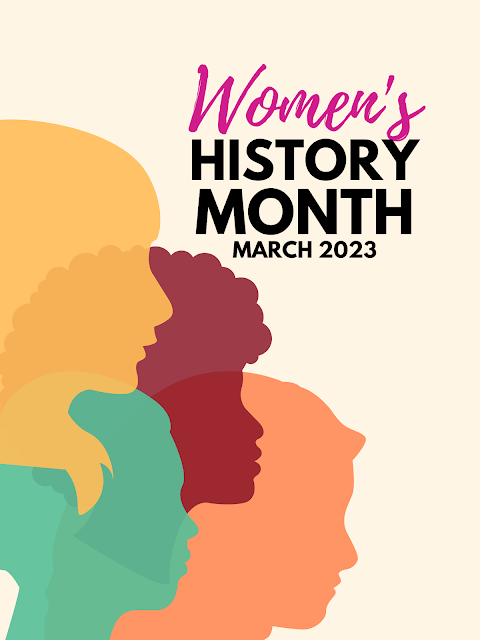This post is coming about three weeks late but better late than never! We have a serious IWD series on this blog and we are not about to let it go this year. So on the very last day of Women's History Month, let's talk about it.
One fear I've had in recent times is that our generation has taken to underestimating gender inequality. After all, we have had female leaders, athletes, corporate executives. Women can now vote, work, drive, yay feminism, right? To add salt to the injury of this perspective is the sudden glamorization of everything generations before us fought against. With the rise of younger women on TikTok ostentatiously broadcasting their dependence on ultra-wealthy boyfriends, glossing over clear imbalance of gender dynamics as they feature their latest designer purses in yet another get-ready-with-me video, or as they deliver yet another aesthetically pleasing smoothie to their boyfriends. What is not as apparent to the impressionable [even] younger viewer is how wide this path is to abuse and powerlessness, and perhaps even sadder, how much those who came before us fought against this very phenomenon.
But the gag is (as the cool kids say), we need advocates for women more than ever. In a world where people falsely believe the differences between men and women are nonexistent, where people believe our work is done, we need louder voices for women. One thing is clear, there are still myriad of biases and barriers that prevent women from pursuing and/or achieving their potential. And I have receipts.
The United Nations Human Rights Office of the High Commission reported in January of 2023, that 130 million girls are denied the human right to education. Many girls are still denied the right to an education; the right to the decision of whether and whom to marry; whether they work and earn outside the home; own property; run for office; have access to contraceptives, or the ability and privilege to decide for themselves whether and when to have children.
Ah yes, contraceptives. Let’s take contraceptives, for instance. An empowering tool often taken for granted by those with unfettered access to it, research has showed that birth intervals are important for perinatal outcomes particularly in low-income nations. When women in developing countries space the births of their children, there are higher chances of survival for those children. Specifically, a study of children born in two Nairobi slums found that children born within eighteen months of an older sibling are more than twice as likely to die as those born after an interval of more than 36 months. The broader benefits of contraception are beyond a woman’s decision about conceiving. It is central to a woman’s personal wellbeing and welfare including factors like the health of her children and how she parents her children. In her book, The Moment of Lift, Melinda Gate described contraceptives as the greatest lifesaving, poverty-ending, women-empowering innovation ever created. She is not wrong.
While a lack of contraceptives can catapult women into further depths of poverty, no one seems to be very interested in society’s poor anymore. People demonize the poor and cast them on the margins of the society but stop short at trying to understand why people are poor. Poverty eats deep into women’s lives: they can’t protect their children by providing food; sometimes, they can’t even do something as simple get adequate information to care for their children; they can’t stand up to a culture that insists on burying them; and worst of all, they are excluded. Exclusion seems somewhat farfetched until we realize that anyone can be made to feel like an outsider, and when power is concentrated in the hands of a few, they can choose to exclude whomever they wish. While this exclusion almost always happens on the basis of race and class, it can cut across gender too. It is why rather than exclude people and push them off to the margins, we must come together to solve deep inequalities.
How do we protect women, irrespective of their nationality, race, creed, or economic circumstance? How do we, in a world where some women are still afraid of asking their husbands to use a condom for the fear of being beaten up, empower women? It is a complicated issue of course, but it must first be named. We must rid ourselves of the myopia that allows us to only view gender issues from the lens of the Western world; the sort of shortsightedness that allows us to elevate the loud echoes of a specific kind of woman to the detriment of all the other women across the world. Let’s name the issues.



No comments